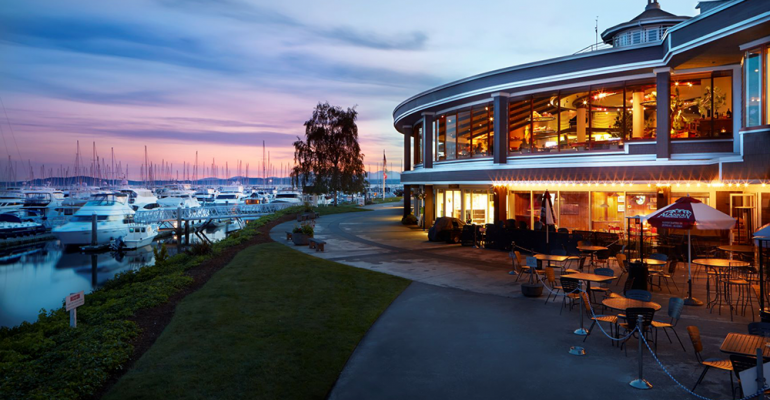Restaurants Unlimited, a Seattle-based company that operates 35 fine-dining and polished casual restaurants in six states, has filed for Chapter 11 bankruptcy protection in the District Court of Delaware, citing rising minimum wages in its core markets, specifically Seattle, San Francisco and Portland, Ore., as well as the company’s own expansion and a general national trend away from casual dining.
Immediately before filing, the company closed six restaurants, according to bankruptcy documents.
Four entities filed for bankruptcy: RUI Holding Corp., RU Corp., Restaurants Unlimited Inc. and Restaurants Unlimited Texas Inc., all 100% owned by Sun Capital subsidiary Sun RUI LLC, based in Boca Raton, Fla. RUI Holding Corp. said in the filing that its assets and liabilities were both between $50 million and $100 million. Most of its top 30 creditors are vendors.
In a declaration in support of the filing, RUI Holding Corp. chief restructuring officer David Bagley, who was appointed on June 17, said that despite the company’s competitive strengths — including innovative food, multiple concepts with different names that give them local appeal, “significant bar business” and scenic and high-activity locations — revenue for the 12 months ended May 31 was down by 1% from the previous year, to $176 million.
He said that over the past three years, RUI’s profitability had been “significantly impacted” by minimum wage increases of 69% in Seattle, from $9.47 to $16, 41% in San Francisco, from $11.05 to $15.59 and 35% in Portland, from $9.25 to $12.50. As a result, the company’s annual wage expenses were up by $10.6 million in fiscal 2019.
Bagley said the company’s cash flow also was impeded by the opening of two restaurants in the second half of 2017, one in Seattle and one in Bellevue, Wash.
“Since opening, the anticipated foot traffic and projected sales at these locations did not materialize and, exacerbated by the increase in employee costs, the company experienced significant operating losses at these locations,” he said.
Bagley also said that RUI had hired an investment banker in the fall of 2016 to explore options to sell the company, and that although more than 170 parties were contacted and eight of them expressed interest in buying it, “no party ever progressed past due diligence to documentation and no sale transaction was ever finalized.”
The company also failed at two attempts at refinancing, starting in spring 2018, he said.
Then, right before filing for bankruptcy, the company closed six restaurants: two Palomino locations, in Indianapolis and Bellevue; Prime Rib & Chocolate Cake in Portland, Ore.; Henry’s Tavern in Plano, Texas; Stanford’s in Walnut Creek, Calif.; and Portland Seafood Co. in Tigard, Ore.
RUI indicated that the remaining 35 restaurants would stay open during the debt restructuring and would continue with what Bagley called “key initiatives designed to drive traffic, increase sales, and enhance the customer experience.”
Those include ongoing loyalty programs and other marketing and “significant gift card sales through its locations and Costco.”
He said the company also was focusing on increasing the number of private events, summertime specials and dining promotions such as chef dinners.
According to the filing, RUI employs about 1,885 part-time hourly employees, around 168 full-time salaried employees in its restaurants and 50 salaried employees at its corporate headquarters in Seattle. None of them are covered by a collective bargaining agreement, it said.
RUI runs restaurants under the names of Clinkerdagger, Cutters Crabhouse, Fondi Pizzeria, Henry’s Tavern, Horatio’s, Kincaid’s Maggie Bluffs, Manzana, Newport Seafood Grill, Palisade, Palomino, Portland City Grill, Portland Seafood Company, Scott’s Bar and Grill, Simon & Seafort’s, Skate’s on the Bay, Stanford’s and Stanley & Seafort’s.
Contact Bret Thorn at [email protected]
Follow him on Twitter: @foodwriterdiary





